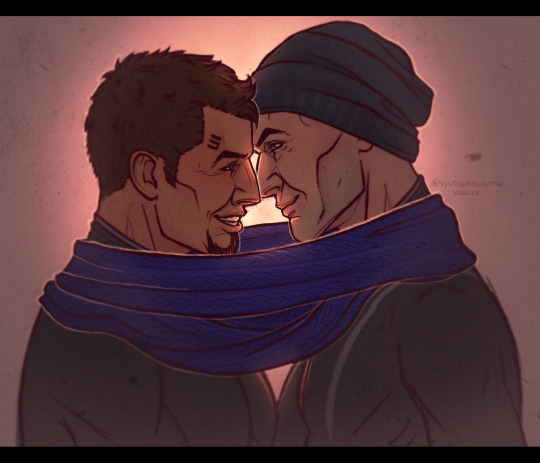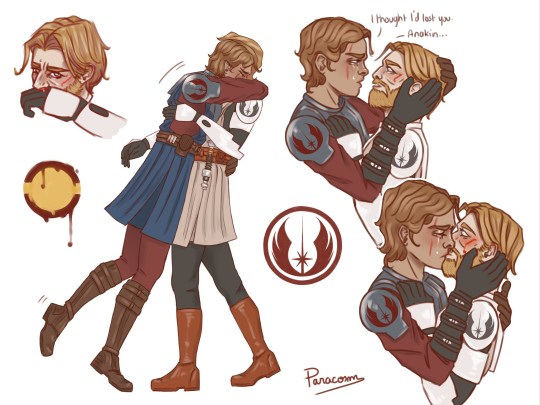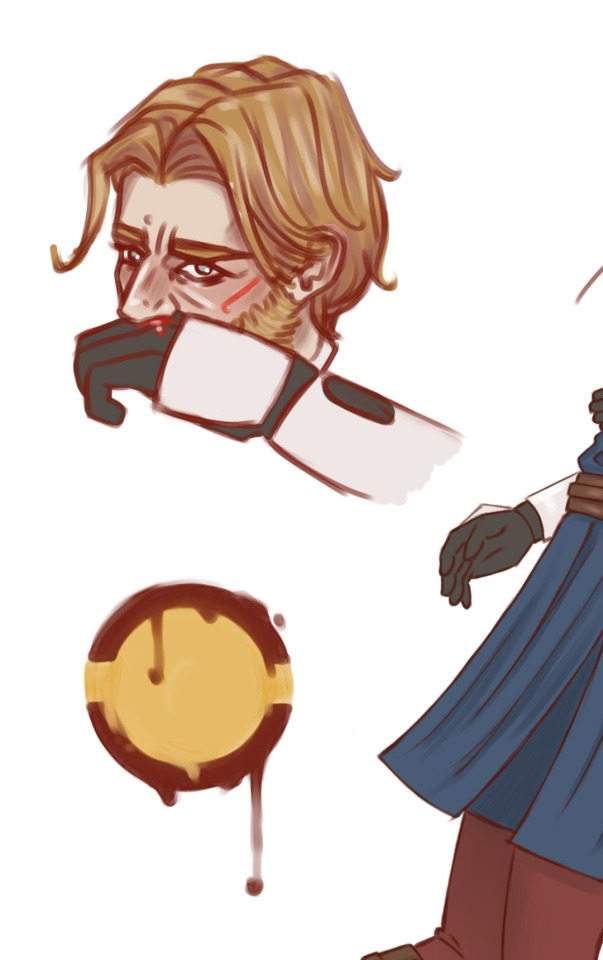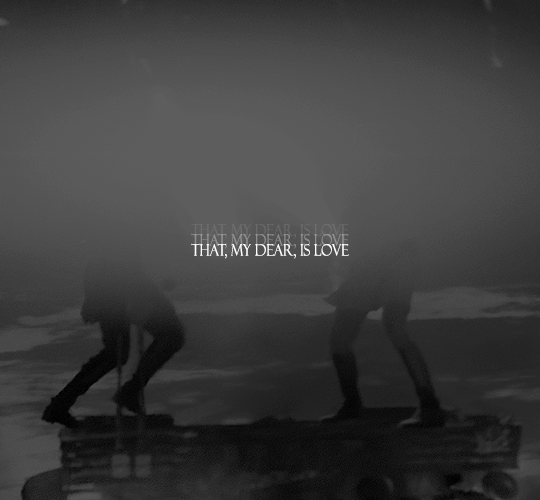Text
also - why the fuck would you respond to a discourse-related post with over 20k notes on it with your “i’m an irl loli” sideblog like do you know how fucking DANGEROUS that??? what the fuck is wrong with you?????
0 notes
Text
like. still trying to mull over this argument and how ridiculous it is like. "this thing is bad, but bad things are allowed to exist"
ok but would it have been "a bad thing" if Super Popular Online Webtoon Creator #48 hadn't told you they don't like icky icky trans headcanons?
#🖋️#'but that's lgbt+phobic' THATS THE POINT#bc you only care about respecting boundaries when they fit into your idea of reasonable. when they suit your politcs#you are so quick to defend creators that want to ban erotic art from their fandoms.#but you forget where we came from and how many creators were openly homophobic and horrible to slash shippers#shit like that made homophobes feel soo comfortable. and it's happening again except w ppl who think sex is a sin - oh sorry. 'problematic'#the point is not about the fanwork being made and whether it is 'bad' or whatever you consider morally dogshit#the point is about the creators that spout censorship and make fandom hostile. who use censorship when it benefits them.#oklahoma sb593. that's a censorship bill in the ok state senate right now. full censorship of all erotic media in the state#stop advocating for censorship. it had consequences.
0 notes
Text
“but it’s mean and rude to go against a creator’s boundaries-“
this is exactly why creators who try to censor fanworks phrase it that way. so that fans who aren’t interested in diving deeper into the situation and analyzing it critically see “that’s mean! being mean is bad!” and don’t consider why creators think that they have the right to control the production of transformative works.
it’s easier to control production of things you find deplorable for moral, political, or other social means when you have a mob behind you - especially one that thinks they’ve got the moral higher ground. do your own critical thinking when you consume media and interact with creators online.
some of you really aren’t gonna like this, but a creator’s wishes should never dictate what fan content is produced for a piece of media.
in the past, authors like anne rice have tried to limit the production of fanfiction. but at least rice was honest - she thought this infringed on her copywrite. back in the day, this was considered a valid argument to not create any fanfiction at all for her works.
do you understand what i’m saying? while you may sound valiant for placing a creator’s “discomfort” above the fan’s natural proclivities in fandom, really you’re just continuing to advocate for censorship in fan spaces.
and for anyone who is a creator, or who wants to become one - get comfortable with the rules of the internet. there will be erotic content made of your characters, there will be weird AUs made with your characters. there will be strange pairings and headcanons, no matter if you interact religiously with the fans or not. you cannot stop people from connecting with and wanting to be creative with your characters.
#not sure why people decide that once someone creates something#that they must immediately hop on their dick and bounce on it crazy style to support their insane ‘boundaries’#meanwhile y’all can’t even adhere to ‘minors dni’. anyway.#reblog
23K notes
·
View notes
Text

Bonus Fives and Echo scarf doodle even though I don’t have ship requests open yet because I could NOT rest til I got this out of my system
Matching scarves is cute but why not share to make Echo smile 😌
107 notes
·
View notes
Text
Little sketches of clone wars obikin because I love them



283 notes
·
View notes
Text
This post is gaining traction, so a few further points:
CP (Child Pornography), is the predecessor to the term CSAM. While legal language is moving away from CP and towards CSAM, CP is still often used in older laws. If someone is quoting a law, most of the time they need to use the direct language from it, and that's ok.
In general conversation, CSAM is preferred over CP when referencing illegal sexual content made with real children. This is because CSAM highlights the affect of the produced material on the victims, as opposed to CP, which focuses more on its sexual nature.
Similar to CSAM, due to its use in legal writing, CP should not be used to reference fictional portrayals of child abuse or sexualized children.
Some also find fault with the term CP because the emphasis on "pornography" focuses more on the moral failings associated with sexuality and sexual content, instead of the harm being done to real children. For whatever reason one may have, unless you're quoting a law, you likely shouldn't be using CP.
If you are in any online spaces that discuss the morality of fiction or its censorship, please keep the following in mind:
CSAM refers to Child Sexual Abuse Material. This is a term that was created for use by US federal law enforcement. As such, it is important to remember that this is a term used specifically to describe illegal sexual content that is produced involving real children. the term CSAM was specifically constructed to highlight the trauma these victims experience because of this abuse, and therefore their humanity.
if you come across CSAM online, you should immediately report it to a tip line. Some websites that host their servers in the US are subject to US federal law even if the person who posted it does not currently reside in the US, so keep that in mind when reporting. again, this is involving CSAM - it is illegal sexual content involving real children.
CSEM refers to Child Sexual Exploitation Material. This is material that involves a real child in a sexualized situation, but either 1- the material itself is not illegal to possess, or 2- the material is not sexualized, but is included in a series or other content that does contain CSAM. Think along the lines or a parent with a few too many photos of their child in the bath. These images are not explicitly sexual, and are not illegal in and of themselves, but they can be used exploitatively.
If you come across CSEM online, it's still a good idea to send in a tip as well as alerting the website it was posted on. Even if the content itself isn't technically illegal, some websites do have strict rules regarding nudity and the sexualization of minors, which can help stop the spread of such materials and reduce the impact on the affected child.
CSAM and CSEM are words used to describe the assault, abuse, sexualization, and exploitation of real children. CSAM, specifically, is used as a way to identify and remove these materials.
CSAM and CSEM do not apply to fiction. They don't apply to any fictionalized or simulated child abuse or sexualized children. They only refer to real children.
Do not send in tips about fictionalized child abuse or sexualized children to tip lines meant to be used for CSAM.
Do not use the words CSAM and CSEM when discussing fictionalized child abuse or sexualized children. In a worst case scenario, it leads to people misusing tip lines due to a conflation of CSAM with fictionalized depictions.
In a more likely scenario, using CSAM to refer to fiction minimizes what CSAM was created to do - which was highlight the trauma experienced by survivors, and therefore draw attention to their humanity. By continuing to use these terms in situations that do not involve real people, it reduces that impact.
1K notes
·
View notes
Note
https://www.tumblr.com/obianakin/772700147535740928/if-you-are-in-any-online-spaces-that-discuss-the
Do you know if there's a different term people should use for sexualized art of children instead? I definitely don't want to use terms meant for real victims but I absolutely refuse to use the word "loli" and calling it "sexualized art of children" every time is kind of a mouthful too
the most common shorthand would be lolicon (young girls), shotacon (young boys) or kodocon (children in general).
if you don’t want to say that, you should just say sexual art of children, or whatever other specific fictional thing you’re describing. there is no standardized term for this type of fiction in the same way CSAM and CSEM are standardized, because CSAM is a term that was created to describe a type of illegal activity.
i don’t think i’m the best person to ask for opinions on this kind of stuff since i have no problem using loli or kodo. i’m more concerned with the misuse of terms that affect real children than cooking up a new term for fictional children.
1 note
·
View note
Note
hi, op of the original post being referenced here. [ this one ]
yes, creators suing fans is universally seen as bad. creators have learned through the mistakes of the likes of rice that there is no net positive from suing the fans over things they don't like. especially in a post-youtube world, we universally despise people who misuse copyright claims and punch down on fans using the full power of whatever fame and money they have. disney, for example, is richer than god and could absolutely sue whoever they want and win easily. but we don't see them trying to take down people sexualizing the princesses because, honestly? that makes them look like an evil corporation, instead of the sweet, welcoming facade they want to put out there.
so, then how can creators control what they put out in the world? they can pretend it's a personal boundary, when really they want to control the creation of transformative works.
creators have a lot of social credit in spaces where their works are popular. some creators can use parasocial bonds in order to leverage their fandom to do things that they want. yes, insisting that no nsfw be made of your characters is leveraging that position of power in a way that isn't conducive to fandom spaces. that's because if a random fan insisted no one could make nsfw in the fandom, people would call them fucking crazy.
a creator's boundaries are important, but they are no more important than that of their fellow fans. just because they created something doesn't mean they own and control the transformation of said work. this is why we have laws that protect transformative works - so that transformative works that creators almost universally hate (criticisms, satire, etc) can be protected from litigation.
the problem with creators insisting that these restrictions be placed in fan spaces is that because of that social credit, the fans will listen to them and attempt to police each other within the fandom on behalf of the creator, creating a hostile fan space for no reason.
yes, telling people not to create nsfw at all for a certain fandom is (attempted) censorship. creators that ask this of fans are overstepping their reach, creating hostile spaces, and looking to stifle the creativity of fandom in general. censorship isn't just instituted by the government or law, it can also be instigated socially.
I’ve seen anons bring up this topic across a couple different shipcourse blogs that I follow. It’s how proshippers believe that people drawing a line on what they don’t want drawn of their own characters is on the same playing field as censorship.
What I mean by that is they think somebody not giving permission to create NSFW of their characters is the same as Anne Rice using laws to censor people.
Personally, I think they’re not equal. One’s setting a boundary and the other is abusing copyright laws. For example, a young artist on the internet not giving someone their consent to draw NSFW is different than an adult trying to mass censor fanworks.
I wouldn’t even call what said-hypothetical-young-artist is doing censorship.
At the end of the day, people are just putting it out there that they don’t give consent and that they’re uncomfortable with it. They aren’t going out of their way to stop anyone.
But, I’m curious as to what your thoughts are?
Oooh, I was hoping somebody brought this up. This may be a bit messy, so feel free to ask me to rephrase things if anything seems too mucky/scattered.
I know I've reboggled it a few times on here, but there is a post out there about the creator of Jake Long being informed whether he wants it or not, porn WILL be created of his show. And that holds true to all forms of art published anywhere where people can see it and socialize about it. That is something that EVERY artist needs to be aware of, and learn to be accepting of.
However, that DOES NOT mean that setting boundaries is a bad thing, or censorship. Anyone is free to set boundaries, whether for themselves (ex. DNIs), or for their works. However, every other user on the internet equally has the right to ignore that if they so wish. However, following internet etiquette, it is typically considered improper to show that content to the creator if they have explicitly stated that they're uncomfortable with its existence. Setting a boundary isn't censorship, nor is people breaking that boundary. A bit rude, mayhaps, especially if that content is then being shoved in that creator's face, however, but the boundary existing isn't, in and of itself, a form of censorship.
It BECOMES censorship when the author, instead of blocking those who created that content they dislike, chooses to misuse the legal protections of their artwork to then purge what they dislike off of the internet or penalize those who broke that boundary, which is why Anne Rice (and more recently, Yaelokre) were quite a big deal. But just going, "hey, please don't lewd this character"? Not censorship at all.
49 notes
·
View notes
Note
If your csem/csam post was made in response to the ao3 csem post in the proship tag, that person WAS talking about real kids, not fictional ones
considering that i detailed in my post that CSAM and CSEM are in reference to real life children, no, it is not about whatever post you may be referring to.
edit: went and scrolled through the tag to see what you were talking about anon, and i didn’t find the post you’re referring to (scrolled back pretty damn far too)
#asks#anon#if you must know the main influence for the post was a tiktok abt a coloring book page. yeah. it’s as ridiculous as it sounds
0 notes
Text
If you are in any online spaces that discuss the morality of fiction or its censorship, please keep the following in mind:
CSAM refers to Child Sexual Abuse Material. This is a term that was created for use by US federal law enforcement. As such, it is important to remember that this is a term used specifically to describe illegal sexual content that is produced involving real children. the term CSAM was specifically constructed to highlight the trauma these victims experience because of this abuse, and therefore their humanity.
if you come across CSAM online, you should immediately report it to a tip line. Some websites that host their servers in the US are subject to US federal law even if the person who posted it does not currently reside in the US, so keep that in mind when reporting. again, this is involving CSAM - it is illegal sexual content involving real children.
CSEM refers to Child Sexual Exploitation Material. This is material that involves a real child in a sexualized situation, but either 1- the material itself is not illegal to possess, or 2- the material is not sexualized, but is included in a series or other content that does contain CSAM. Think along the lines or a parent with a few too many photos of their child in the bath. These images are not explicitly sexual, and are not illegal in and of themselves, but they can be used exploitatively.
If you come across CSEM online, it's still a good idea to send in a tip as well as alerting the website it was posted on. Even if the content itself isn't technically illegal, some websites do have strict rules regarding nudity and the sexualization of minors, which can help stop the spread of such materials and reduce the impact on the affected child.
CSAM and CSEM are words used to describe the assault, abuse, sexualization, and exploitation of real children. CSAM, specifically, is used as a way to identify and remove these materials.
CSAM and CSEM do not apply to fiction. They don't apply to any fictionalized or simulated child abuse or sexualized children. They only refer to real children.
Do not send in tips about fictionalized child abuse or sexualized children to tip lines meant to be used for CSAM.
Do not use the words CSAM and CSEM when discussing fictionalized child abuse or sexualized children. In a worst case scenario, it leads to people misusing tip lines due to a conflation of CSAM with fictionalized depictions.
In a more likely scenario, using CSAM to refer to fiction minimizes what CSAM was created to do - which was highlight the trauma experienced by survivors, and therefore draw attention to their humanity. By continuing to use these terms in situations that do not involve real people, it reduces that impact.
1K notes
·
View notes
Photo



nor is it perhaps really love when i say that for me you are the most beloved; in this love you are like a knife, with which i explore myself.
2K notes
·
View notes






